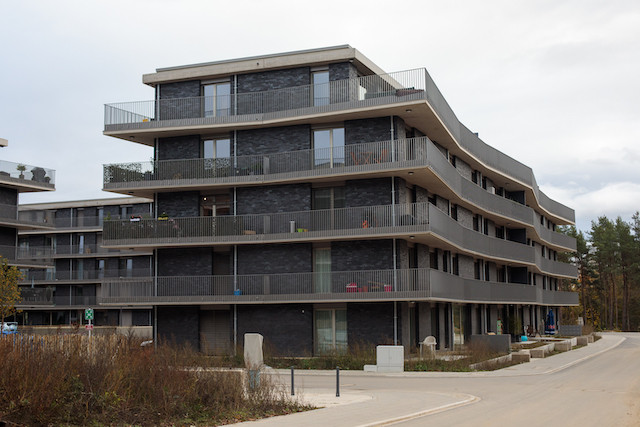That’s the conclusion of a project carried out by researchers at Statec and the University of Luxembourg’s finance department, presented on Friday, which aimed to connect the dots between the grand duchy’s labour market, financial sector and the health of household finances in the wake of a crisis.
“The pandemic has brought renewed attention on the potential fragilities of the different economies, and in the case of Luxembourg an important fragility is the mortgage market. Households in Luxembourg are very indebted,” explained François Koulischer of the Uni.
First, the more optimistic points: Basel III regulation requires banks to have a 3% minimum leverage ratio, and banks in the grand duchy are “comfortably above this, [which is] a good sign, it suggests they could absorb losses on their mortgage portfolio in Luxembourg,” says Koulischer. And, although covid-19 impacted unemployment--which rose from around 5.4% pre-pandemic to around 7% at its height--has since declined again, it remains around 1% more than it was before covid really hit.
However, housing prices aren’t letting up, and they’re increasing faster than average income.
Strain on certain households
While there has been a 10% increase in housing prices year-on-year, Statec’s Pauline Perray states, “We don’t expect fall in housing prices, but a slowdown of increase, around 5% a year in 2021.” In terms of household debt to disposable income, however, Eurostat findings in 2018 reveal that Luxembourg was third highest at 170%, topped only by Denmark and Netherlands.
House prices have also increased faster than average income. “We know…that high household leverage can increase the procyclicality of the business cycle and the intuition is that if households have a lot of debt, and very high leverage, then their net worth becomes very sensitive to small changes in house prices,” Koulischer explained. “This leads to a very large and negative impact on the net worth of households.”
In order to increase savings, of course, households have to reduce their consumption, “and this further worsened the downturn,” he added. "And it’s worse for those in more precarious situations.”
When analysing richer or poorer households, with a first to fifth quintile household with an average gross income of around €25,000 and €230,000, respectively, the difference in debt service to income--indicating percentage of monthly payments going toward housing--is striking. For a first quintile household, this figure is around 80%, compared to 15% for the fifth quintile. A household in the fifth quintile has a debt service to income ratio of around 15%.
The stress test: could households survive?
In the researchers’ “back-of-the-envelope” stress test, which provides a glance at how households’ balance sheets could be impacted by shock, they found that the most vulnerable households “could have negative cash reserves in less than 3 months”.
As the Uni’s Thi Thu Huyen Tran explained, the project did take into account sector and income variances. For example, at the height of the lockdown, some sectors--e.g., construction, horeca --took most advantage of the government’s partial unemployment scheme, while the case was the exact opposite for financial services.
The researchers also took note of the fact that those working in public admin, health, defence and education, as well as “extra-territorial” (e.g., European institutions), were more likely compared to those in other sectors to be residing within the grand duchy, as opposed to being a cross-border worker.
Their stress test takes into account various sectors. To provide one example: a first quintile household in the industry sector--which would be safe under normal (pre-covid) conditions--would survive 2.41 years or 1.07 years if they received only 80% or 60% of their income, respectively.
Looking forward
Christos Koulovatianos, also from the university, is working on another model he hopes can help forecast prices. “What is alarming and of concern is that rents have not been increasing as much,” he said. “It’s something we cannot understand. It could be related to a bubble, [in] past years people could see a trend and buy earlier…” He is working on a model to “at least be able to have a take on the slowdown”, more information about which should be forthcoming.
